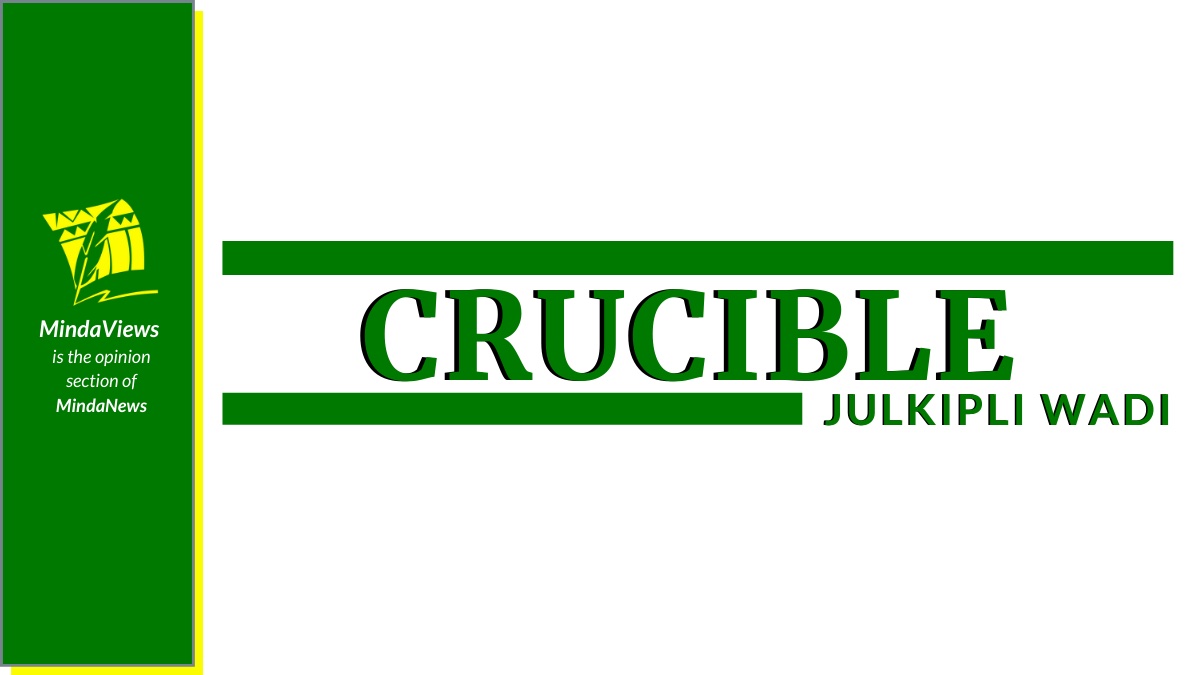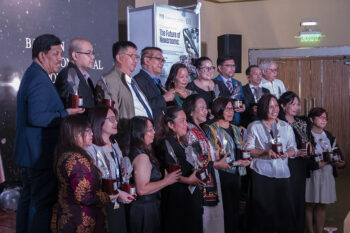
(Below is my take on two bills about hijab that is currently deliberated at the House of Representatives presented via Zoom on 14 September 2022. For purposes of brevity, only a few paragraphs were read during the presentation and, except with some minor editing, no new thoughts are added into the piece).
QUEZON CITY (MindaNews / 14 Sep) – The two bills – House Bills 1363 and 3725 – share the same title, “An Act Declaring the First Day of February of Every Year as National Hijab Day,” with the former carrying additional title, “Promoting an Understanding of the Muslim Tradition of Wearing a Hijab.” Yet, the content of the two bills is the same.
Representative Mujiv Hataman authors HB 3725, while Bai Dimple Mastura authors HB 1363. Why is there a discrepancy in the title of the two bills? The title of the Mastura Bill is more consistent with the form and content that is composed of two parts: (1) declaration of National Hijab Day, and (2) promoting understanding about hijab.
As noted in HB 3725, the same bill was actually proposed in past Congress years back by former Representative Sitti Djalia Turabin-Hataman and that the Senate then turned it down. May we know the reason/s why it was not approved by the Senate? If the reasons for non-passage into a law are substantive, it would be interesting to know the reasons why so that their infirmities could be cured and thus these current bills would not receive the same fate.
Pending the availability of the above request, allow me to divide my comments into two: first, on the content of the two bills; second, my general take on the concept of hijab, its significance and implications in relation to promoting awareness amid trends of Islamophobia and, if I may include, increasing schisms among various Muslim groups, and, more positively, increasing interest on hijab and other pertinent issues among inter-faith dialogue partners and institutions. [This latter part is not included in this piece, including my discussion about the “propriety” of National Commission on Muslim Filipinos as lead agency to implement the Hijab National Day program as time is not enough to discuss it.]
On HB 3725 to declare the first day of February as National Hijab Day, questions must be raised: are there researches done by the office of the Representatives how feasible February 1 to be declared as a “National Hijab Day” as there might possibly be other “national days” of February 1? Is simultaneous declaration, if any, say two or more national days legal or practical? What if there are parallel or conflicting activities that would require in the commemoration of such national days?
Noticeably, National Hijab Day is, if ever, two weeks before Valentine’s Day, where the latter’s popularity is about to be shared with something related to hijab. Well, that is a good binary of two days with rootedness in two faith traditions in the Month of February.
Whereas Article III Section 5 of the 1987 Philippine Constitution is reflected as “Declaration of Policy” of the two bills that states: “The State recognizes the role of women in nation-building, and shall ensure the fundamental equality of women and men before the law. The free exercise and enjoyment of religious profession and worship, without discrimination and or preference, shall be forever allowed.”
It is suggested that the last line of Article III Section 5 be stated in the “Declaration of Policy” that states: “No religious test shall be required for the exercise of civil or political rights.”
This last line of said article and section of the Bill of Rights is important in the protection of one’s liberty, belief and persuasion amid global tensions on religion and politics. The issue of hijab as a symbolic projection of identity – an Islamic identity at that – is central in such tensions.
The Bills’ definition of hijab is well taken as it shows a range or latitude of what hijab is and the areas of a woman’s body to be covered. While not stated in the bills, such a latitude is shown in two Qur’anic terms (jilbab and libaasu t-taqwa) which refer to women’s covering with varied cultural labels and style of use across countries generally known as hijab and other variants like burqa and niqab.
While these varieties of women’s covering in their external forms are recognized, most importantly, a more profound understanding of hijab and its variants must be anchored with what the Qur’an so emphasizes as libaasu t-taqwa – the raiment or clothing of righteousness or spirituality. The Qur’an says:
“O ye Children of Adam! We have bestowed raiment upon you to cover your shame, as well as to be an adornment to you. But the raiment of righteousness, – that is the best. Such are among the Signs of Allah, that they may receive admonition! (Sura A’raf 7: 26).”
This verse points out that while the use of outer coverings are praiseworthy, what is more important or what the Qur’an refers to as “the best” or “dhaalika khayr” is the “raiment or covering of spirituality.” At times, people can be bogged down discussing even quarreling on niceties and nitty-gritty of external attire, but they fail to connect or be animated with what the Qur’an refers to as best covering – the libaasu t-taqwa.
In fact, when said “best” of raiment or cover animates a person then the use of hijab and other covering would be resorted to as a matter of course where believing women do not need to be prodded against or “missionarize” upon how subtle the strategy may be.
Danger lurks, in fact, when externalities are given more importance from, or if it is not able to connect with and get nourishment from, deeper, spiritual nurturing. Conversely, if an individual feels strong with truth internally without it springing forth outside and defining the totally of one’s life; then, real appreciation of din (religion, Islamic system) could not stand as well. In this regard, a hijab or any external trappings detached from libaasu t-taqwa can just be a display let alone a show of one’s hypocrisy and folly.
Finally, let me comment on the two objectives of the bills – promoting awareness on hijab and warding off discrimination.
In a multi-cultural society like the Philippines, it is necessary that such objectives and the framing of language to effect it must be well calibrated, lest they create a backlash or be impressed as another form of proselytization or a kind of subtle “missionarying.”
Take objective one of the two bills: “To encourage Muslim and non-Muslim women to wear the hijab and experience the virtue in wearing it.”
With the way it is worded, this objective is intrusive into a person’s sensitivity. It is close to “missionarying” on women who do not wear hijab. The word “encourage” is quite strong and the phrase “the virtue in wearing it” impresses the view that non-hijabis are unvirtuous. This is a strong claim of self-righteousness. It injures the self-worth of the other.
The question is how much “push” should be done in showing the importance of hijab to women that is tolerant, gender-sensitive, and multi-cultural.
A suggested rephrase of said objective can be: “To provide Muslim and non-Muslim women opportunity to have a free choice in understanding, and possibly and voluntarily, in trying the hijab and experience its personal and aesthetic values.”
Finally, whether promoting hijab can address or ward-off discrimination is a question. Wrong conception about hijab often happens with discrimination by association as it is viewed as a symbol used by extremists and terrorists while magnified and sensationalized by Western media with their projections of hijab as archaic, medieval and oppressive. Conversely, appreciation of hijab also happens when it is understood properly with due positive portrayal of women wearing it.
To say the least, hijab is only a part of equation in the spectrum of social appreciation and discrimination. What is important is the quality of people wearing it. Hence, they should doubly excel in their endeavors as they don the hijab, doubly conscious of their faith, and doubly mindful in their ways and conduct. These are the real antidotes to discrimination and a more responsible way in attracting the other to hijab.
[MindaViews is opinion section of MindaNews. Julkipli Wadi is Professor of Institute of Islamic Studies, University of the Philippines.]







